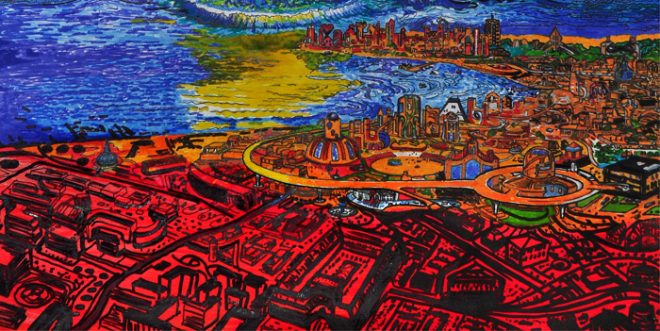Lawyer: People Increasing VPN, Tor Use to Avoid Media and Crypto Censorship
March 16, 2019 by Jeff Fawkes
Notable Russian lawyer Sarkis Darbinyan says governments are actually making people much smarter by imposing website blockades. To avoid censorship, more and more Russians (as well as those in other countries) are learning to flee by using Tor and VPN services to access blocked news sites, or obtain cryptos.
Also read: Mt Gox CEO Mark Karpeles Sentenced to 2.5 Years, but Won’t Go Back to Prison
We love hearing from our readers. Sound off on our Twitter or Facebook pages
Check out our insights & interviews with influential insiders on the Bitsonline YouTube channel
And for the only source of UNFILTERED trading volume, head to CoinBillboard
Criminals Remain in the Shadows… Again
People in Russia constantly encounter crypto-related site blockades. Many of the sites are safe and very useful, but authorities still block them for Russian users who have been living without VPN services — so far. The government wants to turn the local web into a closed place, with censorship of topics like cryptos, anime, cannabis, truth, and science. This means turning the Internet into a version of free broadcast television, with its meaningless content, messages from the sponsors, and a lack of intellectual choice. Criminals, at the same time, will remain untouched. Per Darbinyan:
“Today, VPN is not a tool for criminals and dangerous freaks. As we see, more and more people use VPN by default. Nobody can count the exact number of VPN users, but after a certain number of services were blocked Russia-wide, the number of VPN app installations have increased. The Tor network also reports that they observe a sustainable growth in userbase.
As for the criminals, nothing has changed regarding their works. They have absolutely no problems regarding the blockade, and people who perform crime activity in the Internet are far away from being spotted, anonymizing themselves in the pitch black of Darkweb.”
When the governments of Russia or any other country start blocking some sites, this only increases VPN usage. Ukrainian authorities blocked popular social media service Vkontakte back in 2017, forcing a large slice of youth to jump on the free VPN app train. Despite the fact that free VPN subscriptions can track information about you, keep logs, or show ads within their app, they are still very useful in hiding yourself from the local ISPs who could spy on unencrypted traffic, track IPs and passwords, personal data, etc.
Censorship a Business Opportunity for VPN Providers
All the former USSR countries have shown an increase VPN usage, with many people unrelated to computer science using free VPN subscriptions. For example, here’s the results of a poll conducted by the “Mr. Freeman” Telegram Channel (MFCoin project) with around 10,000 subscribers:
The question was: “Which type of VPN do you use?” Free VPN got 703 votes. Paid VPN is the preference for 60 channel members, and 191 people said they didn’t even know about VPN. As the word spreads and more people are educated about what’s available, more are likely to seek (and find) ways to mask their online activities.
Do you have a paid or a free VPN subscription to avoid local censorship? Share your VPN-related stories in the comments below.
Images by Jeff Fawkes




